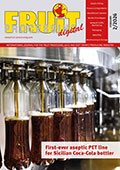Rabobank Report: Further Consolidations Expected In China’s Soft Beverages Market
There is likely to be a wave of consolidations in China’s beverages market as it responds to the…
There is likely to be a wave of consolidations in China's beverages market as it responds to the USD 5 billion alliance of Tingyi and PepsiCo, according a report from Rabobank. Smaller, 'second tier' beverages players will be affected most by the new alliance, as they struggle to compete with Tingyi-PepsiCo's – as well as fellow beverages giants Coca Cola and Wahaha – established advantages in brand equity, distribution networks, supply chains and investment capital.
Despite the dominance of Tingyi-PepsiCo, there are still solutions for smaller beverages businesses to earn profits. Rabobank expects smaller players to partner with each other to pool resources, as well as focus on specific subcategories or specific roles in the value chain.
Opportunities exist for international second-tier players to partner with Chinese beverages companies with local know-how, particularly those based in smaller, fast growing cities. An example comes from Nestlé who recently bought 60 percent of Xiamen Yinlu Food, the leading producer of canned food and vegetable protein drinks, and are leveraging the distribution network of Yinlu to reach lower tier cities and penetrate other beverage subcategories such as bottled water and ready-to-drink (RTD) teas.
Several big or fast growing beverage subcategories such as herbal drinks, RTD coffees and teas are excluded from the tie up between Tingyi-PepsiCo and as such, smaller players are excellerating their growth efforts in these areas. Over the past five years, herbal drinks have been the fastest growing beverage category in China, with a compound annual growth rate of over 35 percent. If this growth trend continues it presents a significant opportunity to beverages companies specialising in this drinks sector.
Moreover, with a large proportion of China's beverages giants' revenue coming from carbonated soft drinks (CSDs), competetors are developing advertising and marketing programmes designed to highlight the benefits of health drinks, as well as to disseminate negative messages about the health effect of CSDs.








